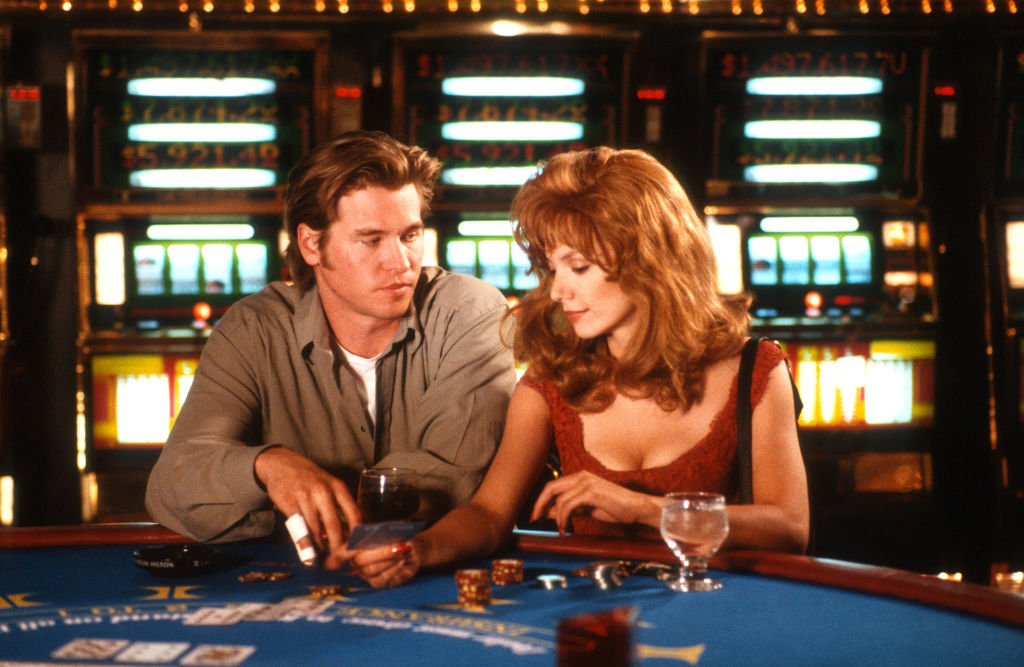Sometimes it seemed to me as a young hack that writing obituaries must be the best job in newspapers. You can’t get sued – though people tend not to take the gloves off out of ‘respect’ and use ancient phrases like ‘bon viveur’ and ‘did not suffer fools gladly’ when everyone knows you mean ‘well-connected drunk’ and ‘ill-tempered’.
It’s only once in a blue moon that someone really says what they think, like when the ‘social influencer’ Jameela Jamil barely waited until the fashion designer Karl Lagerfeld was cold in his casket before X-ing that the capering clown – widely being celebrated as a ‘genius’ – was in fact ‘a racist, misogynistic, fat-phobic rape apologist who shouldn’t be posted all over the internet as a saint gone-too-soon’. There’s a lot to be said for speaking ill of the dead; it’s a good corrective to the laws which make libel a rich man’s hobby and a bracing palate cleanser during the inevitable deluge of tributes insisting that there’s another twinkling star in heaven tonight no matter how dodgy the character.
But reading the recent write-ups of Val Kilmer’s death, I realised it’s a job that wouldn’t suit me at all. It’s all very well going gaga when a person of great importance meets their maker, whether that importance is measured through fame, achievement or both. But often we weren’t even aware that the subject was alive any more. The death of anyone is sad for those who love them, and if they’re a famous entertainer, it’s sad for a whole other level of people, their fans. But when someone well-known but unremarkable dies, there’s a gap between the obits and the reality. With Kilmer, it boiled down to ‘Was in a film with Tom Cruise, married British stunner Joanne Whalley, played Jim Morrison’ – and then a bunch of bumpf to make up the word count.
One newspaper went for the glory-by-association angle, the headline recalling that ‘Tom Cruise “cried” during emotional reunion with Val Kilmer on Top Gun: Maverick’. Those quotation marks, by the way, somewhat comically imply that Tom Cruise may well have been pretending to weep – or maybe that’s just me being mischievous. Another newspaper carried a series of ‘snaps’ picturing in close-up Kilmer’s ex-wife and his adult daughter ‘sharing a tender hug outside a home in West Hollywood, just a day after she confirmed that her father passed away from pneumonia’. For some reason it was vital that we knew how the two grieving women were attired: ‘Kilmer’s daughter was pictured in a black sweatshirt, Ugg boots and sunglasses as she carried two large tote bags on her shoulder while moving items into her car. Joanne wore a long red cardigan over a black top and pants and was pictured embracing her daughter in a moment of shared grief.’ One almost expected the additional cheery fashion tip: ‘Why not zhuzh up your trad mourning black with accents of spring-fresh yellow and green?’ As the best-rated comment put it: ‘What parasites to camp outside their private residence to catch and photograph them in grief.’
It’s all very well going gaga when a person of great importance meets their maker, but often we weren’t even aware that the subject was alive any more
The BBC decided that repeating tattle-tales of on-set beefs would be an eye-catching angle: ‘Kilmer’s reputation for being difficult on set had reportedly exploded into open warfare with the director, Joel Schumacher, normally the most temperate of men, who called his leading man’s behaviour “difficult and childish”. John Frankenheimer, who directed Kilmer in The Island of Dr Moreau, was even blunter. “I don’t like Val Kilmer,” he said. “I don’t like his work ethic and I don’t want to be associated with him ever again.”’ (He went on to add a zinger elsewhere: ‘Even if I was directing a film called The Life of Val Kilmer, I wouldn’t have that prick in it.’) Even the serious-minded Guardian seemed mainly interested in his extra-thespian antics: ‘Temperamental on-set behaviour by successful actors is common, but rarely made public. So it takes a particular type of performer, or one with poor PR defences, to become notorious for tantrums or capriciousness.’
Merriam-Webster define an obituary as ‘a notice of a person’s death usually with a short biographical account’. I’m keen on the phrase ‘death notice’ myself; nice and plain. But what happens when a famous person kicks the bucket these days is either just an excuse to rake up as much scandal as possible – ooh, I’d forgotten they were banging X! – or to totally lose perspective on both the stature and the talents of the person involved. Because most obituaries are, rather, ‘nobituaries’.
Nobituaries feed and are fed by the phenomenon which my husband, with admirable masculine brusqueness, calls ‘tearleading’: large groups of people getting together on social media to competitively mourn dead celebs. With grief at full throttle, anything less than full-on canonisation or excoriation seems difficult to manage. Though it happened before social media: in 1999, I remember one public figure, perhaps even the Prime Minister of the time, saying of the late Jill Dando’s shocking and horrible death that she had been at ‘the height of her powers’. Sorry, but how? She read the news from an autocue. Some clown wrote in an obituary of Paula Yates that she was ‘a survivor’ – she’d just died at the age of 41!
‘When men choose not to believe in God, they do not thereafter believe in nothing, they then become capable of believing in anything,’ G.K. Chesterton famously said, and the death of faith appears to have left us far less calm and composed than we once were about death itself. We no longer see it as a simple matter of ‘joining the majority’; it leaves us all a-fluster, not knowing whether we should use it as an excuse to drag out wagonloads of juicy gossip or attempt to sanctify the passed soul – so long as it’s big and noisy. Personally, I hope my death notices are short, sharp and unsentimental: she came out of nowhere, she made it all by herself, she was a good writer and a great tipper. That’ll do me – keep your nobituaries in all their fussing and flurry and very modern foolishness.







Comments